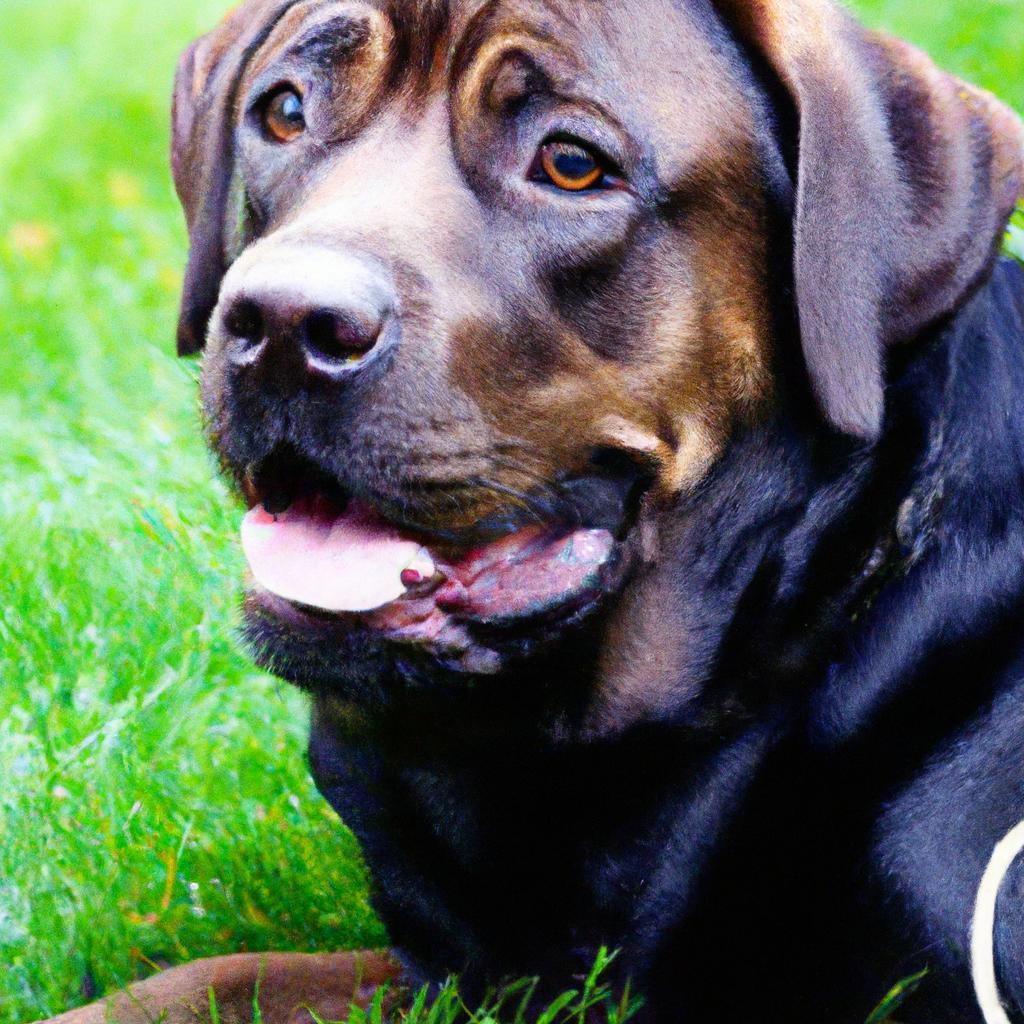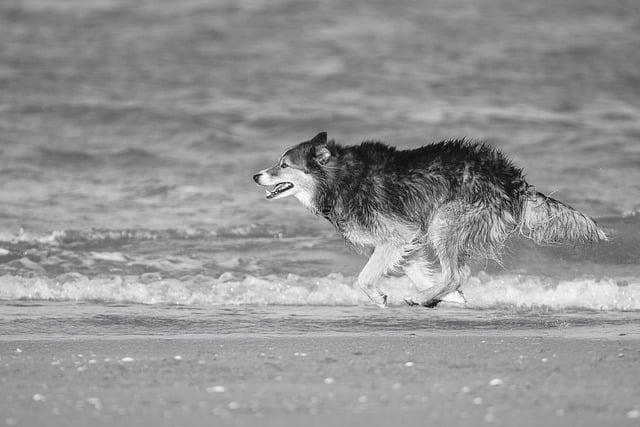In a quiet suburban neighborhood, a family faced a growing concern about safety. One evening, they heard a rustle outside, and their hearts raced. Enter Max, a spirited German Shepherd. With his keen instincts and unwavering loyalty, he stood watch, barking fiercely at any sign of trouble. The family felt an immediate sense of security. Max not only deterred potential threats but also became a beloved member of the household. When it comes to the best guard dog, the German Shepherd’s intelligence, strength, and protective nature make him an unparalleled choice for safeguarding your home and loved ones.
Contents
- Understanding the Essential Traits of an Ideal Guard Dog
- Top Breeds Renowned for Their Protective Instincts
- Training Techniques to Enhance Your Guard Dogs Effectiveness
- Evaluating Your Home Environment for the Perfect Guard Dog Match
- Q&A
Understanding the Essential Traits of an Ideal Guard Dog
When considering the ideal guard dog, several essential traits come into play that can significantly influence their effectiveness. **Loyalty** is paramount; a guard dog must be fiercely devoted to its family, ensuring that it will protect them at all costs. This unwavering allegiance fosters a strong bond between the dog and its owners, making it more likely to respond to threats with courage and determination.
Another critical characteristic is **intelligence**. A guard dog should possess the ability to assess situations quickly and make sound decisions. Intelligent dogs can learn commands and cues more easily, allowing for effective training. This adaptability not only enhances their protective instincts but also ensures they can differentiate between normal activities and potential dangers, reducing unnecessary aggression.
**Temperament** plays a significant role in a guard dog’s suitability. An ideal guard dog should exhibit a balanced demeanor—confident yet calm, assertive but not overly aggressive. This temperament allows them to remain composed in stressful situations, ensuring that they can act decisively without becoming a liability. A well-tempered dog will also be more manageable around family and friends, striking a balance between protection and sociability.
Lastly, **physical capability** is a fundamental trait that cannot be overlooked. A guard dog should possess strength, agility, and endurance, enabling it to confront threats effectively. Breeds known for their athleticism and robust build are often preferred, as they can not only deter intruders with their presence but also engage in physical confrontations if necessary. This combination of traits ensures that the dog is not only a protector but also a reliable companion for the family.
Top Breeds Renowned for Their Protective Instincts
When it comes to selecting a dog with exceptional protective instincts, certain breeds stand out due to their natural guarding abilities and unwavering loyalty. These breeds are not only known for their physical prowess but also for their keen intelligence and strong bond with their families. Here are some of the top contenders that have earned their reputation as formidable protectors:
- German Shepherd: Renowned for their versatility and intelligence, German Shepherds are often employed in police and military roles. Their protective nature, combined with their ability to learn commands quickly, makes them ideal guardians for families and properties alike.
- Rottweiler: With a powerful build and a confident demeanor, Rottweilers are natural protectors. They are fiercely loyal to their families and can be both gentle companions and formidable defenders when the situation calls for it.
- Doberman Pinscher: Known for their speed and agility, Dobermans are highly trainable and possess a strong instinct to protect their loved ones. Their alertness and intelligence make them excellent watchdogs, ready to respond to any perceived threat.
- Belgian Malinois: Often used in military and police work, the Belgian Malinois is a highly energetic and intelligent breed. Their strong protective instincts and ability to work closely with humans make them exceptional guardians for both homes and businesses.
In addition to these breeds, several others also exhibit remarkable protective traits. For instance, the Bullmastiff, with its imposing size and gentle temperament, is known for its loyalty and protective nature. Similarly, the Boxer, while playful and affectionate, has a strong instinct to guard its family, making it a reliable protector.
- Akita: This breed is known for its unwavering loyalty and protective instincts. Akitas are naturally wary of strangers, making them excellent watchdogs that will defend their home and family fiercely.
- Chow Chow: With their lion-like appearance and strong-willed nature, Chow Chows are not only loyal companions but also formidable guardians. Their aloofness towards strangers adds an extra layer of protection.
- Giant Schnauzer: This breed combines strength and intelligence, making them excellent protectors. Their natural guarding instincts, coupled with their trainability, ensure they are always vigilant and ready to defend their territory.
Choosing a dog with protective instincts goes beyond just selecting a breed; it involves understanding the individual dog’s temperament and training needs. While these breeds are renowned for their guarding abilities, proper socialization and training are crucial to ensure they develop into well-rounded companions. A well-trained dog can distinguish between a genuine threat and a harmless visitor, providing peace of mind while maintaining a friendly environment.
Training Techniques to Enhance Your Guard Dogs Effectiveness
To maximize the effectiveness of your guard dog, implementing a variety of training techniques is essential. **Positive reinforcement** is one of the most effective methods, as it encourages desired behaviors through rewards. This can include treats, praise, or playtime whenever your dog successfully performs a command or exhibits protective behavior. By consistently rewarding your dog, you build a strong bond and motivate them to respond positively in real-life situations.
Another crucial technique is **socialization**. Exposing your guard dog to different environments, people, and other animals helps them become well-adjusted and confident. This training should begin at a young age and continue throughout their life. A well-socialized dog is less likely to react aggressively out of fear and can better discern between a genuine threat and a harmless situation. Regularly introducing your dog to new experiences will enhance their ability to assess situations accurately.
Incorporating **obedience training** is also vital for a guard dog’s effectiveness. Teaching basic commands such as sit, stay, and come not only establishes control but also reinforces the importance of following commands in high-stress situations. Advanced training techniques, such as **protection work**, can be introduced once your dog has mastered the basics. This type of training focuses on teaching your dog to protect you and your property while maintaining control and discipline.
Lastly, **consistent practice and routine** are key components in training your guard dog. Establishing a regular training schedule helps reinforce learned behaviors and keeps your dog mentally stimulated. Engaging in daily exercises, such as agility drills or scent work, can enhance their physical and mental capabilities. By maintaining a structured training regimen, you ensure that your guard dog remains sharp, responsive, and ready to protect when needed.
Evaluating Your Home Environment for the Perfect Guard Dog Match
When considering the ideal guard dog for your home, it’s essential to assess your living environment thoroughly. Different breeds have unique temperaments and physical requirements, which can significantly influence their effectiveness as protectors. Start by evaluating the size of your property. A larger yard may accommodate a more active breed, while smaller spaces might be better suited for dogs that require less room to roam.
Next, think about the presence of children or other pets in your household. Some breeds are known for their protective instincts but may not be as tolerant of young children or smaller animals. It’s crucial to choose a dog that can integrate well into your family dynamic. Consider breeds that are known for their gentle nature, such as the **Boxer** or **Golden Retriever**, if you have kids, while still maintaining a protective edge.
Another factor to consider is your lifestyle and activity level. If you lead an active life and enjoy outdoor activities, a breed like the **Belgian Malinois** or **German Shepherd** may be a perfect fit, as they thrive on exercise and engagement. Conversely, if your routine is more sedentary, a breed that requires less physical activity, such as the **Bullmastiff**, might be more appropriate. Understanding your daily habits will help you select a dog that can comfortably adapt to your lifestyle.
Lastly, assess your home’s security needs. If you live in a high-crime area, a more assertive breed, such as the **Rottweiler** or **Doberman Pinscher**, may be necessary to deter potential threats. However, if your neighborhood is relatively safe, a less aggressive breed that still offers companionship and protection, like the **Labrador Retriever**, could be sufficient. By carefully evaluating these aspects of your home environment, you can make an informed decision that ensures both your safety and the well-being of your new canine companion.
Q&A
-
What breeds are considered the best guard dogs?
Some of the top breeds known for their guarding abilities include:
- German Shepherd
- Rottweiler
- Doberman Pinscher
- Belgian Malinois
- Boxer
These breeds are not only strong and protective but also intelligent and trainable, making them excellent choices for guarding homes and families.
-
How do I choose the right guard dog for my home?
When selecting a guard dog, consider the following factors:
- Your living situation (house vs. apartment)
- The size of your property
- Your family’s lifestyle and activity level
- Experience with dog training
Choosing a breed that fits your environment and lifestyle will ensure a harmonious relationship and effective guarding.
-
Are guard dogs safe for families with children?
Yes, many guard dog breeds are known for their loyalty and protective instincts towards children. However, it’s crucial to:
- Choose a breed known for good temperament with kids
- Provide proper training and socialization
- Supervise interactions between the dog and children
With the right approach, a guard dog can be a loving and protective family member.
-
What training do guard dogs require?
Guard dogs need comprehensive training that includes:
- Basic obedience commands
- Socialization with people and other animals
- Specific guarding techniques
- Regular exercise to maintain physical and mental health
Investing in professional training can enhance your dog’s guarding abilities and ensure they are well-behaved and reliable.
choosing the best guard dog is not just about breed but also about compatibility with your lifestyle and needs. Invest time in training and socialization, and you’ll find a loyal protector that enhances your home security and peace of mind.

大家好,我是彼得潘,專業的手法身體治療師。我喜歡探索和研究各種主題,並透過與人工智慧的合作分享專業、實用、有趣的文章。我們定期進行人工審核,以確保內容的準確性。如果您發現文章中有任何不準確的地方,請隨時與我們聯繫,我們會及時糾正。您可以透過 [email protected] 與我們聯繫。



